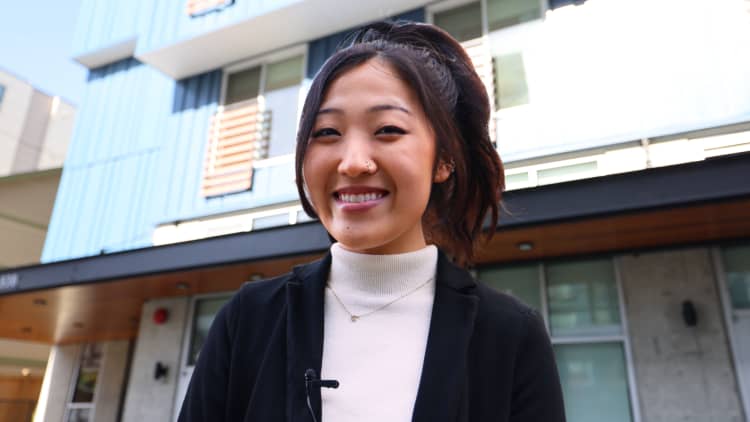Many people believe that eating local honey can lessen or even cure your seasonal allergies. Others say the remedy is actually fish oil. But what do experts think? And, more importantly, what does the research show?
The thinking behind using local honey as a defense against allergy symptoms stems from this logic: "If you ingest the pollens that bring you discomfort, you build up an immunity against them," says Andew Cote, head beekeeper at Andrew's Honey.
Ideally it should be honey collected from your area, that has pollens from the trees and plants that grow in your neighborhood, Cote adds. This is commonly referred to as "local honey," which Cote collects across the five boroughs in New York City.
Yet, "very little of these common pollen allergens would make it into honey," according to the Asthma and Allergy Foundation of America.
"Bees eat nectar and gather pollen produced by brightly colored flowers. These are not the same pollens responsible for most allergies (trees, grasses, and weeds)," the organization wrote in its blog. And, the make-up of the pollen likely changes during the bees' digestion process, AAFA adds.
And yet, the myth of local honey persists. So does it ever actually help alleviate the symptoms of allergy sufferers?
Can eating local honey cure seasonal allergies?
"It's a bit of a complicated answer, and I don't think you'll get a simple yes or no," says Dr. Timothy Wong, board-certified family medicine doctor and medical expert for JustAnswer.
"In modern medicine, we really look at the clinical trials and evidence to determine if something works or not. And, unfortunately when you're not using medications that have billions of dollars of funding for research and development, you don't get as many clinical trials," Wong tells CNBC Make It.
The pool of studies that examine the effects of local honey on allergy symptoms is extremely small, he adds, which makes it difficult to come to a clear conclusion. Still, researchers have conducted small studies to test this hypothesis.
A 2002 study of 36 participants who had seasonal allergies found that eating locally collected and unfiltered honey had no significant effect on the allergy symptoms of those who ate it versus those who did not.
On the flip side, a 2013 study with 40 participants concluded that eating honey daily, in addition to taking allergy medication as needed, was associated with less allergy symptoms at the eight-week mark, compared to taking the allergy medication alone.
How much honey should I eat? When should I start?
If you'd like to give this natural method a try, here are some things that you should keep in mind.
A spoonful each day, weeks before allergy season, is ideal
Daily honey consumption is the ideal frequency because "most of the clinical trials were actually done daily," says Wong. Eating honey every other day may also be fine.
"One spoon a day every morning is the recommended dosage," Cote notes.
You should also begin eating local honey "a few weeks before you had symptoms last year," Wong adds, and definitely before allergy season starts if you can.
This year, allergy season started much earlier than usual, but Cote typically recommends starting the process between late February and mid-March.
Where you get your honey from matters, too. Search for local farmers' markets that can track where the product was sourced or find beekeepers in your area that you can buy honey from directly, Wong says.
"In the worst-case scenario, it does no good against the allergies, but one has enjoyed some delicious local honey," says Cote. "I don't think there's a downside."
There are some people who shouldn't try honey for allergy relief
Most importantly, the American Academy of Pediatrics strongly discourages giving honey to kids under the age of one because it can cause botulism, which is a rare and life-threatening condition that attacks the body's nervous system.
And for anyone who's allergic to bees or wasps: "There are some cases where people who have bee allergies can also get allergies from honey, so that's just something to be aware of," Wong says.
DON'T MISS: Want to be smarter and more successful with your money, work & life? Sign up for our new newsletter!
Check out:



